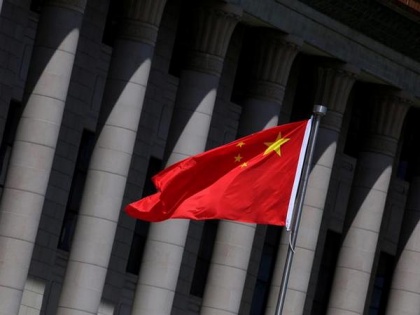Arbitrary detentions by Chinese govt instill fear among foreigners against visiting China: Report
By ANI | Published: March 13, 2021 06:04 PM2021-03-13T18:04:01+5:302021-03-13T18:19:05+5:30
The detention of a handful of foreigners in recent years have instilled a deep fear in some people against visiting China as relations between Beijing and the West worsened.

Arbitrary detentions by Chinese govt instill fear among foreigners against visiting China: Report
The detention of a handful of foreigners in recent years have instilled a deep fear in some people against visiting China as relations between Beijing and the West worsened.
More than a dozen academics, NGO workers and media professional, who used to visit China regularly, told CNN that they are unwilling to travel to the country once the pandemic restrictions are lifted, over fears for their personal safety.
Several people fear that might be targeted due to a diplomatic spat between their government and Beijing.
According to CNN, many cited the detention of two Canadians in China in December 2018 as a turning point in their thinking.
Michael Kovrig, an NGO worker and former diplomat, and Michael Spavor, who orgsed trips to North Korea, including for NBA player Dennis Rodman, were detained just after Huawei executive Meng Wanzhou was arrested in Vancouver on charges filed in the United States.
Their detentions have been characterised as a bargaining chip to help leverage Meng's release, an accusation Beijing denies.
Last August, Chinese-Australian TV anchor Cheng Lei was also detained amid worsening ties between Beijing and Canberra. Cheng's detention was all the more surprising given she worked for the state media channel, CGTN.
All three are facing charges of spying.
Gordon Matthews, a professor of anthropology living in Hong Kong, says some of his colleagues at the Chinese University of Hong Kong who have devoted their lives to China are exploring pursuing new lines of academic inquiry to avoid visiting the mainland.
William Nee, an American who works for NGO China Human Rights Defenders, falls into the category of foreigners unwilling to travel to China, and says he knows many others, with "a lower risk profile" than the two detained Canadians, who have made the same judgment.
"It's not really a question only of, 'What are the things I have been doing that may have contributed to my getting detained?' It's also a question of, 'What is my nationality? What have the politicians from my country have been saying?'" said Nee.
"If they're willing to arbitrarily detain someone who was a very moderate, thoughtful academic, or a think tank type of person," he added, "then it's difficult to see how anyone can feel safe."
China said the "so-called increased risk in the arbitrary detention of foreigners in China" was "completely inconsistent with the facts."
"China has always protected the safety and legitimate rights and interests of foreigners in China in accordance with the law," stated the Chinese foreign ministry in a statement in response to CNN's inquiry. "On the Internet and social media, many foreigners share their experiences of working and living in China, saying that China is one of the safest countries they have ever lived in, and it is safe even when walking alone at night."
The statement added that, in fact, Meng Wanzhou's experience in Canada was a "typical case of arbitrary detention, and we hope she can return to China as soon as possible."
( With inputs from ANI )
Disclaimer: This post has been auto-published from an agency feed without any modifications to the text and has not been reviewed by an editor
Open in app